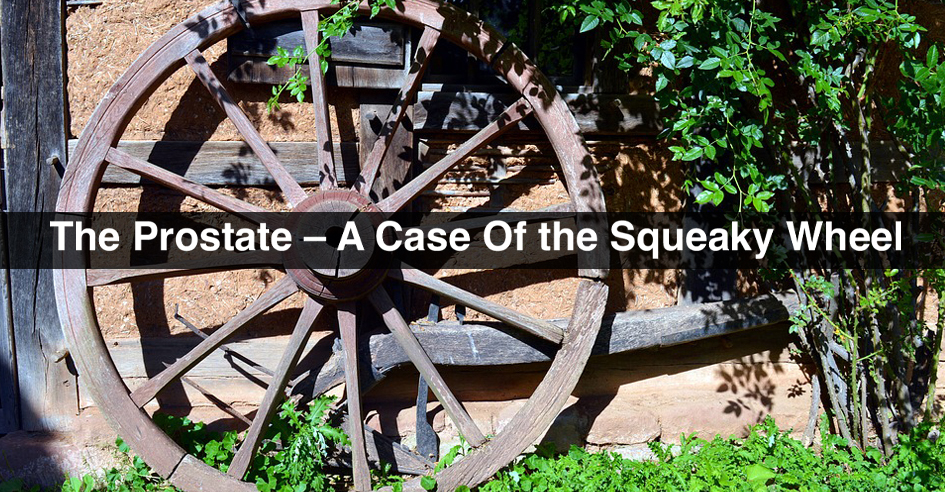
The Prostate – A Case Of the Squeaky Wheel
By Mark J Kaylor
There is an old saying that “the squeaky wheel gets the grease;” while not normally thought of as a “health” quote, it does seem quite applicable to the small walnut -sized gland in men known as the prostate. The sad truth is that the vast majority of men pay little or no attention to the prostate, that is, until a problem arises. I’d even go so far as to suggest that we men don’t even know what a prostate does and why we have one. When it comes to prostate health there are three primary issues:
- Prostatitis – inflammation of the prostate, often caused by an infection.
- Benign prostatic hyperplasia – proliferation of prostate cells resulting in enlargement of the prostate
- Prostate cancer – the second most common cancer among men in the US.
While there are several pharmaceutical and surgical options they can often be slow to show benefit or may come with disturbing side effects, including loss of libido and erectile difficulties. They are also much more expensive compared to the natural alternatives, which, in many cases research has demonstrated comparable benefits between the two.
Doing It Naturally
Saw Palmetto – you could easily call this herb “the prostate health herb”. Multiple studies have demonstrated a range of benefits, including increased urinary flow, decreased frequency of day and night time urination, lowered DHT levels, inhibition of 5-alpha reductase, and decreased residual urine. One study found ~90% of men with moderate to severe BPH experienced improvements in all major symptoms.
Pumpkin Seed – researchers have found benefits with the oil, extract, and whole seed. This zinc-rich food (zinc alone has been shown to reduce the size of the prostate) contains cucurbitacins that can prevent the conversion of testosterone to dihydrotestosterone, thought to be a leading cause of BPH. One animal study found that pumpkin seeds prevented the development of BPH while the human study observed that the extract improved symptoms in men.
Lycopene – this carotenoid exhibited the ability to significantly reduce the risk for prostate cancer in animal studies. It inhibits androgen receptor expression in prostate cancer cells, reduces prostate cancer cell proliferation, and may affect insulin-like growth factor pathway in prostate cancer cells.
Broccoli – eating broccoli one or more times a week was shown to reduce the risk of prostate cancer as well as lower the risk of the cancer becoming more aggressive. The active compounds in broccoli are even more concentrated in the broccoli sprouts.
Green Tea – contains the active compound EGCG which has demonstrated numerous prostate supporting actions, including slowing the growth of human prostate cancer cells, repairing damaged DNA, and lowering DHT and PSA levels.
Maitake – when it comes to preventing or fighting cancer it is essential to maximize our immune function, by incorporating the immune boosting Maitake D-Fraction we can increase both the activity and the numbers of our immune cells. Research is also demonstrated its ability to induce apoptosis (cell death) in prostate cancer cells.
An Ounce of Prevention
Just as it is with our health in general, prevention is the best path; don’t wait for your prostate to develop problems, start on your preventive way today. Thankfully the above natural remedies offer their benefits preventively as well as therapeutically. They also appear to work well with one another; researchers have demonstrated several synergies between these various compounds for prostate health. This being the case, it may be best to choose a prostate formula that combines several of these ingredients for the most beneficial and broadest prostate health impact.
